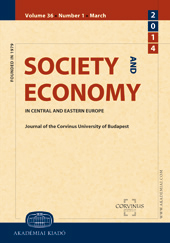Hungary’s foreign policy dilemmas after regaining sovereignty
Hungary’s foreign policy dilemmas after regaining sovereignty
Author(s): Géza JeszenszkySubject(s): Politics, International relations/trade, Ethnic Minorities Studies
Published by: Akadémiai Kiadó
Keywords: Hungary; foreign policy; national minorities; bilateral treaties; Visegrád Cooperation;
Summary/Abstract: Hungary seems to have almost perennial dilemmas about the course to be taken in its foreign policy. Attempts by powerful empires (the German, the Habsburg, the Ottoman and the Russian empires) to dominate the country led to loss of independence from the 16 th to the 20 th century, and full sovereignty has been regained only in 1991 with the seizure of Soviet occupation. The relations with the peoples living next to or intermingled with the Hungarians have also been always difficult because of the conflicting claims to identical territories. Following the collapse of Communism there was the danger of the renewal of hostilities with those neighbours, either by opening the issue of border change, or related to the (mis)treatment of close to three million Hungarians detached from Hungary by the Peace Treaty imposed in 1920. The restraint of the Hungarian government led by J. Antall, the creation of cooperative mechanisms exemplified by the Visegrád Cooperation, and the conduct of the Euro-Atlantic partners, including measures adopted for the protection of national minorities, explain why Central Europe did not become the scene of violence which characterised the Balkans in the 1990s.
Journal: Society and Economy. In Central and Eastern Europe ǀ Journal of the Corvinus University of Budapest
- Issue Year: 29/2007
- Issue No: 1
- Page Range: 43-64
- Page Count: 22
- Language: English

